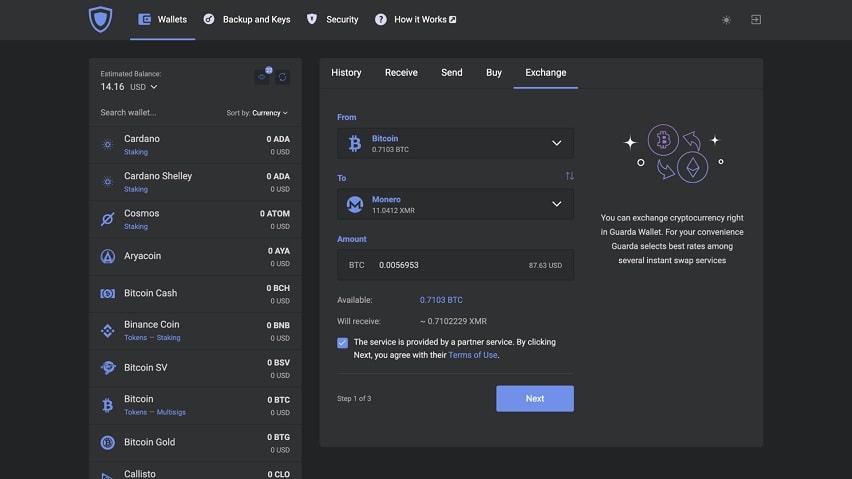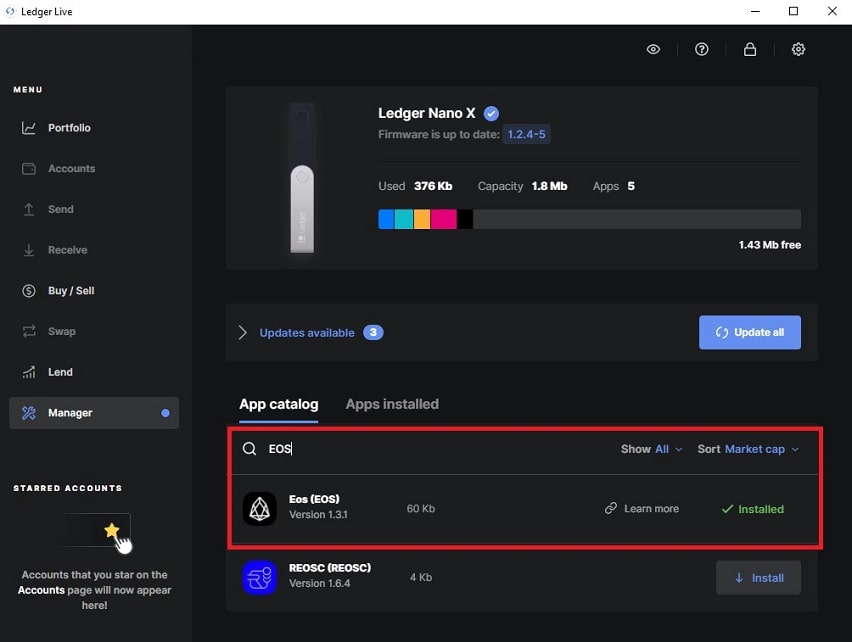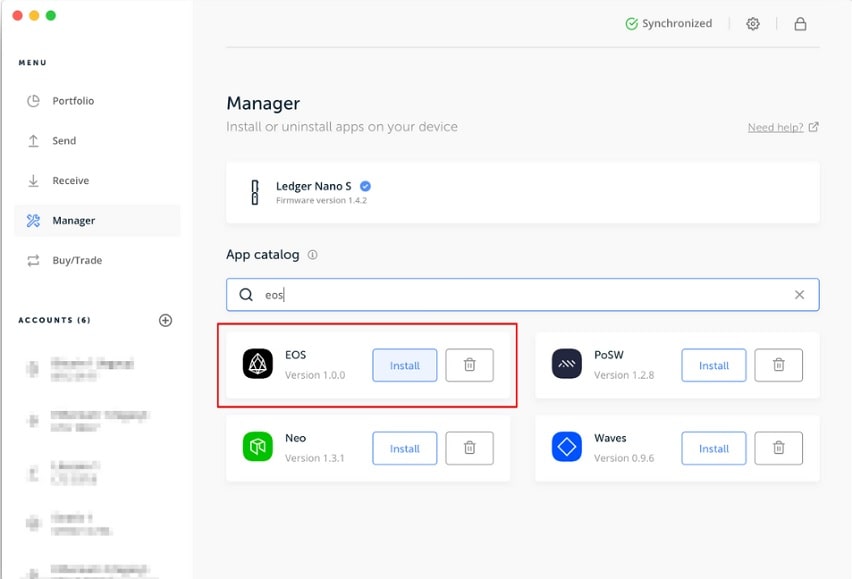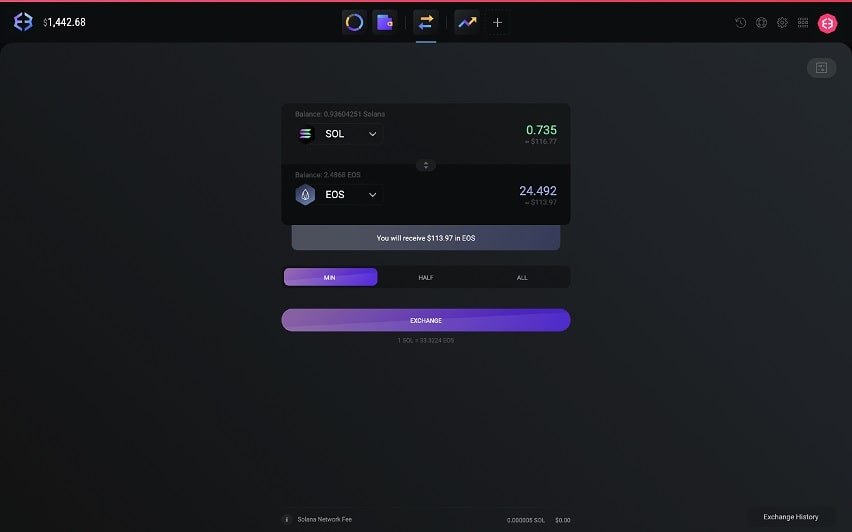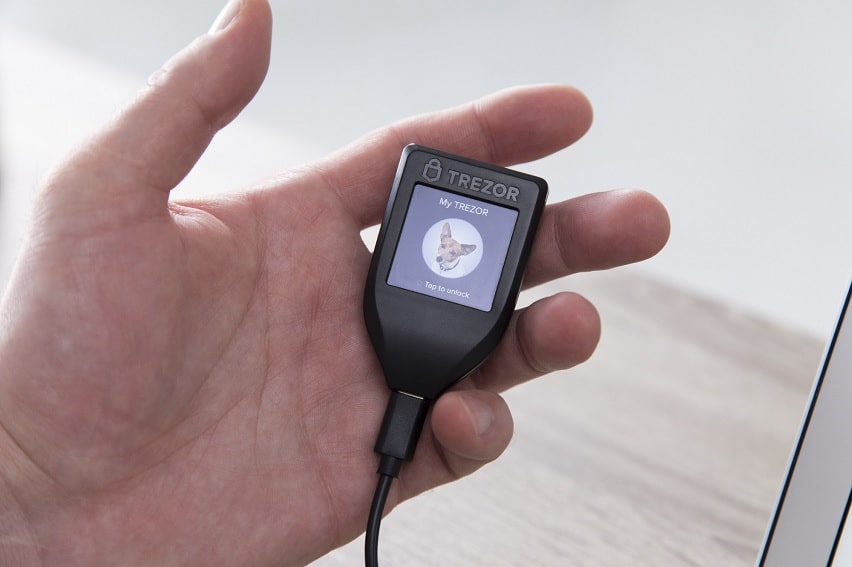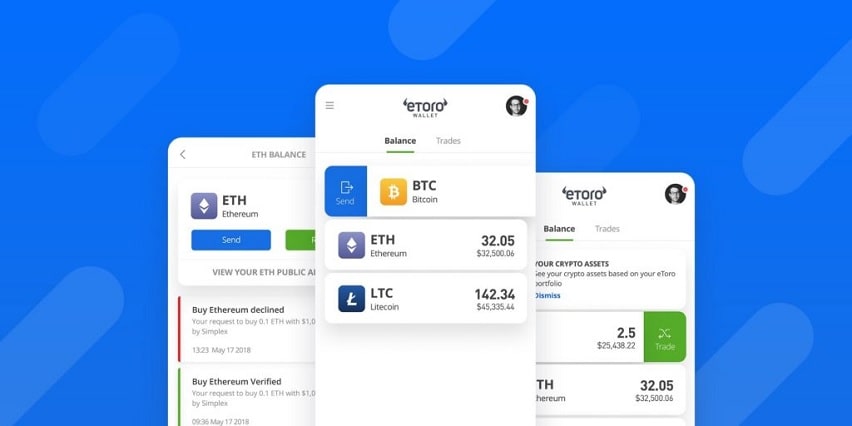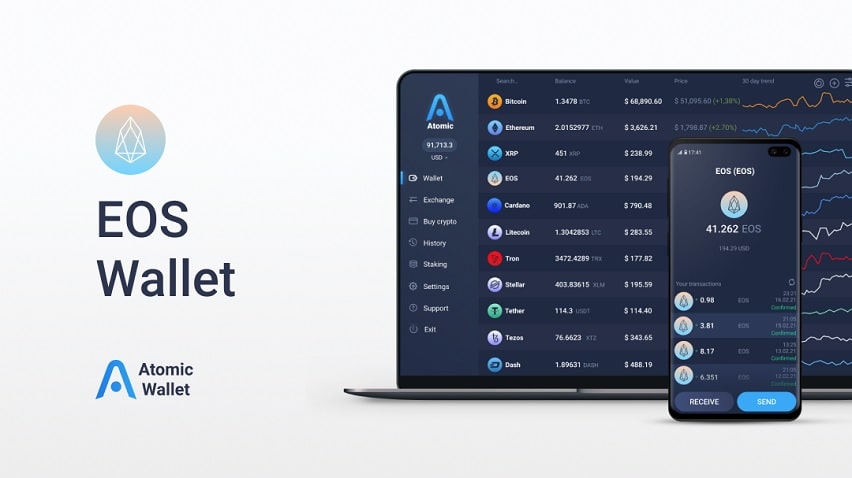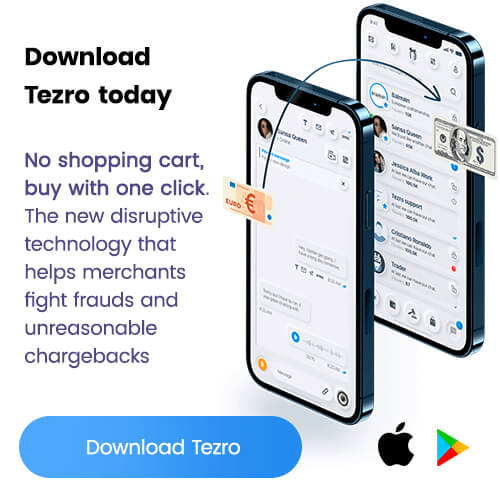If you are looking for the best EOS wallet, you know the value of securely storing your crypto assets. EOS, in particular, is a platform with immense promise and already has a loyal following.
Therefore, ensuring the safety of your EOS tokens is crucial.
What is EOS?
EOS is a blockchain-based, smart contract platform that utilizes the ERC-20 token. It uses delegated proof-of-stake and aims to offer horizontal scalability, meaning it can process thousands of transactions per second.
What is an EOS Wallet?
An EOS wallet is a digital wallet that can be used to store, send, and receive EOS tokens. Wallets are important because they provide a way to access your EOS tokens.
There are different types of wallets available, each with its own set of features. Some wallets are better suited for beginners while others offer more advanced features for experienced users.
This article narrows down the best EOS wallets available in 2023. By the end, you’ll know which wallet is best suited for you and your needs.
1. Guarda Wallet
Guarda Wallet is a non-custodial wallet that supports EOS and over 400,000 other cryptocurrencies. The wallet is available for desktop, mobile, and web.
The Guarda Wallet interface is user-friendly and designed with simplicity in mind. Users can easily create a new wallet, making it one of the best wallets for beginners.
The Guarda Wallet also offers a built-in exchange that allows users to swap between supported cryptocurrencies without having to leave the wallet interface.
One of the most unique features of the Guarda Wallet is its support for “atomic swaps”. This feature allows users to trade one cryptocurrency for another without having to use a centralized exchange.
Staking is another key feature of the Guarda Wallet. Users can stake their EOS tokens and earn rewards for participating in the network.
In terms of security, this wallet uses industry-standard AES256 encryption to secure user data. The private keys are also stored locally on the user’s device and are never shared with any third-party servers.
Pros
- Supports over 50 blockchains: Regardless of your preferred cryptocurrency, it’s likely that Guarda Wallet supports it. In addition to EOS, the wallet also supports blockchains such as Bitcoin, Ethereum, Litecoin, and more.
- Non-custodial: One of the advantages of a non-custodial wallet is that you are in complete control of your private keys. This means that only you have access to your funds and no one else can freeze or seize them.
- Excellent customer service: Have a question about the wallet? The Guarda Wallet team is responsive and more than happy to help out. You can get in touch with them through their website, social media, or email.
Cons
High in-app crypto purchase fees: While the wallet itself is free to use, there are fees associated with buying and selling cryptocurrencies within the wallet interface. These fees can be quite high, ranging from 5% to 10%.
2. Tezro
We cannot talk about the best EOS wallets without mentioning Tezro. This wallet is one of the most user-friendly wallets out there and it has a very simple interface. Its intuitive design makes it a great choice for those who are not familiar with cryptocurrency wallets.
There is a built-in chat feature that uses disruptive technology to help you connect with other users and ask questions. You can also send and receive payments through chat; hence, it is a great wallet for those who are looking for an easy way to use cryptocurrency.
Tezro also comes with a built-in exchange that allows you to buy, sell, and trade your EOS tokens. The exchange is very easy to use and it offers a great way to get started with cryptocurrency trading.
As the best wallet for EOS, Tezro comes with industry-leading security features. It uses two-factor authentication to ensure that your account is secure. Additionally, it is a non-custodial wallet, which means that your private keys are never stored on Tezro’s servers.
Pros
- Multi-currency: You can manage multiple currencies in one place with Tezro.
- Intuitive design: The wallet has a very user-friendly interface.
- No KYC: You don’t need to go through a KYC process to use the wallet.
- Multi-platform: Tezro is available on multiple platforms, including iOS, Android, Windows, and macOS.
Cons
Relatively new: Even though this is not necessarily a con, it is worth noting that Tezro is a relatively new wallet.
3. Ledger Nano X
There is no better way to protect your EOS tokens than by using a hardware wallet. Ledger Nano X is one of the best hardware wallets for EOS. This wallet allows you to store your private keys offline, which makes it virtually impossible for hackers to steal your coins.
In addition to being a very secure wallet, Ledger Nano X is also very easy to use. The interface is user-friendly. You don’t need expert knowledge to use this wallet.
One of the main features of Ledger Nano X is the secure storage of private keys. It generates a 24-word recovery phrase that can be used to restore your coins if your Ledger device is lost or stolen.
Another great feature is the ability to send and receive EOS tokens directly from the wallet. There is no need to use an exchange. Once you connect it to your computer or mobile, you can use the Ledger Live software to manage your account.
Pros
- Hardware wallet: One of the biggest advantages of using Ledger Nano X is that it is a hardware wallet. This means your private keys are stored offline, making it impossible for hackers to steal your coins.
- User-friendly: The user interface is very user-friendly. Even if you are new to cryptocurrency, you will be able to use this wallet without any problems.
- Supports over 1300 assets: Ledger Nano X supports over 1300 assets, including EOS. This means you can store all your cryptocurrencies in one place.
Cons
- More expensive than other wallets: Ledger Nano X is more expensive than other wallets on the market. The price is currently $119.
- Not open source: Ledger Nano X is not an open source wallet. This means the code is not available for everyone to see.
4. Ledger Nano S
Another hardware wallet on our list is the Ledger Nano S. This is one of the most popular hardware wallets available and it’s easy to see why. The Ledger Nano S uses a proprietary operating system known as Blockchain Open Ledger Operating System (BOLOS) and a secure chip that stores your private keys.
Its tamper-resistant Common Criteria (CC) EAL5+ certified Secure Element (SE) chips are used in military, banking, and medical applications. The Ledger Nano S also comes with a backup seed key so that you can recover your funds if your device is lost or stolen.
French National Agency for the Security of Information Systems (ANSSI) audits and certifies the hardware and software of the Ledger Nano S. Therefore, you can be sure that your funds are safe with this wallet.
Pros:
- Supports over 1,100 assets: Ledger Nano S supports a wide range of cryptocurrencies including Bitcoin, Ethereum, XRP, Litecoin, Dogecoin, and many others.
- Privacy: Ledger Nano S doesn’t require you to provide your personal information.
Cons
- Limited space for crypto apps: The Ledger Nano S can store only a limited number of crypto applications at a time.
- The display is not a touchscreen: The display of the Ledger Nano S is not a touchscreen which can be seen as a downside by some users.
5. Exodus Wallet
Exodus is a desktop and mobile wallet with a very simple user interface and an easy-to-use backup system. It also has ShapeShift built in for exchanging cryptocurrencies. This exchange feature is available on both the desktop and mobile versions of Exodus.
The wallet supports over 150 different cryptocurrencies, including all major EOS tokens. It is also one of the most secure wallets, as it uses two-factor authentication and a host of other security features.
The wallet doesn’t use a KYC framework, which means that you don’t need to provide any personal information to use it.
Pros
Intuitive interface: The interface is clean, simple and easy to use.
- In-built cryptocurrency exchange: You can easily exchange cryptocurrencies within the Exodus wallet.
- Linkage to exchanges: You can link your Exodus wallet to exchanges like Binance and Kucoin for even more convenience.
Cons
- No custom fees for altcoins: When sending altcoins, you may need to pay the fees as stipulated by the network. Exodus doesn’t allow for custom fees.
6. Trezor One
Trezor one is a hardware wallet that offers military-grade security for your coins. The device connects to your computer via USB and has a small OLED screen that displays important information like your seed phrase, transaction values, and more.
Trezor one is compatible with hundreds of cryptocurrencies, including EOS, and offers robust security features like two-factor authentication, password manager, and U2F support.
It integrates with Trezor exchange and wallet services, allowing you to buy, sell, and store your coins in one place.
Pros
- Limited USB access: Trezor one requires physical access to your computer to work, which makes it more secure than wallets that are accessible via the internet.
- Offline storage: Trezor one stores your coins offline, which protects them from hackers.
- Highly portable: As a small, sleek, lightweight device, Trezor one is easy to carry with you wherever you go.
Cons
- Expensive: At $99 USD, Trezor one is one of the more expensive hardware wallets on the market.
- Doesn’t support iOS: Trezor one Won’t work on your apple device as it doesn’t support iOS
7. Trust Wallet
Supporting over one million cryptocurrencies, Trust wallet is one of the most comprehensive wallets on this list. It is the best EOS wallet online thanks to its wide range of advanced features, ease of use, and high level of security.
One of the most notable features of Trust wallet is its built-in exchange, which allows you to seamlessly exchange cryptocurrencies without having to leave the app.
Other features include a decentralized application (DApp) browser, staking support, and fingerprint/face ID login.
Pros
- High-end security: This wallet uses military-grade security protocols to keep your coins safe, including a 2FA system, encrypted private keys, and more.
- Anonymity: Trust wallet does not require any personal information from you, making it one of the more anonymous wallets on this list.
- Convenient mobile usage: Trust Wallets mobile app is lightweight, user-friendly, and available for both Android and iOS devices.
Cons
- You can’t restore lost accounts via customer support: If you lose your Trust Wallet account, customer support will not be able to help you restore it.
- Susceptible to phishing and social engineering: There have been reports of users losing their funds to phishing scams and social engineering attacks.
8. Coinbase
Coinbase is one of the most trusted and well-known cryptocurrency exchanges in the world. It has a built-in wallet you can use to safely store your EOS tokens. The platform is also known for being user-friendly and easy to use.
Coinbase is a good choice for those who are new to the world of cryptocurrency and want to find a reliable place to store their tokens. The company has a good reputation and is one of the most popular exchanges in operation today.
The wallet is compatible with some of the best hardware wallets, including KeepKey, Ledger, and Trezor. This means that you can keep your EOS tokens safe even if you lose your phone or computer.
Pros
- Authentication options: There are multiple ways to authenticate your identity on Coinbase, making it a secure platform. This includes two-factor authentication, email verification, and phone number verification.
- User-friendly platform: Coinbase is one of the most user-friendly cryptocurrency exchanges available. The platform is easy to understand and use, even for those who are new to the world of cryptocurrency.
- Supports NFTs: Coinbase supports the buying, selling, and storing of NFTs. This makes it a good choice for those who are interested in collecting or investing in NFTs.
Cons
- Follows some KYC rules: Coinbase requires its users to go through a Know Your Customer (KYC) process. This means that you will need to provide some personal information, such as your name and address, when you sign up for an account.
- Acts as the hosted wallet: Coinbase stores your private keys on their servers. This means that they have control over your tokens and can freeze or suspend your account at any time.
9. eToro Wallet
eToro is a multi-asset investment platform that offers both investing in stocks and crypto assets, as well as trading CFDs.
The platform is well-respected thanks to its ease of use, low spreads, and innovative social trading features.
The eToro Wallet is a mobile wallet that allows you to store and trade your crypto assets on the go. The wallet itself is very user-friendly and offers a great experience.
Pros
- On-chain address: This wallet uses an on-chain address, which means that your private keys are stored on the blockchain. This is a major security advantage over hot wallets, which store your private keys off-chain.
- Great design: The eToro wallet is beginner-friendly thanks to its great design.
- Multi-currency support: The eToro Wallet supports a wide range of currencies, including Bitcoin, Ethereum, Litecoin, XRP, and more.
Cons
- Not open source: The eToro Wallet is not an open-source wallet. This means that the code is not available for public review.
- High non-trading fees: The eToro Wallet has high non-trading fees. This means that it costs more to use the wallet for things like transferring funds and sending transactions.
10. Atomic Wallet
The Atomic Wallet is a non-custodial wallet that puts you in control of your private keys. This means that only you can access your funds, and no one else can freeze or take away your cryptocurrencies.
This wallet allows users to use a 12-word backup seed phrase to restore their private keys and funds if they lose or damage their device. This makes it a great choice for users who are looking for extra security.
Pros
- Supports over 500 coins: Atomic Wallet supports a long list of cryptocurrencies, including all major coins like Bitcoin, Ethereum, Litecoin, and XRP.
- Built-in exchange: The built-in Atomic Swap Exchange allows users to quickly and easily exchange cryptocurrencies without having to go through a third party.
- By crypto feature: By default, all assets are stored offline in Atomics’ “vault.” This makes it more difficult for hackers to steal your private keys and funds.
- Encrypted private keys: All private keys are encrypted and stored locally on your device.
Cons
- Not hardware-compatible: Unlike some other wallets, Atomic Wallet is not compatible with hardware devices like Ledger Nano S and Trezor.
- Does not generate a new address for each transaction: Every time you make a transaction, your wallet will use the same address. This could potentially lead to someone being able to track your activity if they have your public key.
Key Takeaways
- EOS is a blockchain-based, smart contract platform that utilizes the ERC-20 token.
- You should choose an EOS wallet based on security and the ability to hold multiple cryptocurrencies.
- Do thorough research before picking a wallet.
- Divide your assets through multiple wallets to have a lesser risk of security breaches.
Conclusion
With an increasing number of EOS wallets available, it can be difficult to decide which one is right for you. The best EOS wallet for you will depend on your unique needs and preferences.
However, all of the wallets on our list are excellent choices that offer a variety of features and security protections. We hope this article has helped you narrow down your options and find the perfect wallet for storing your EOS coins.
Download Tezro app and keep your EOS assets safe.

